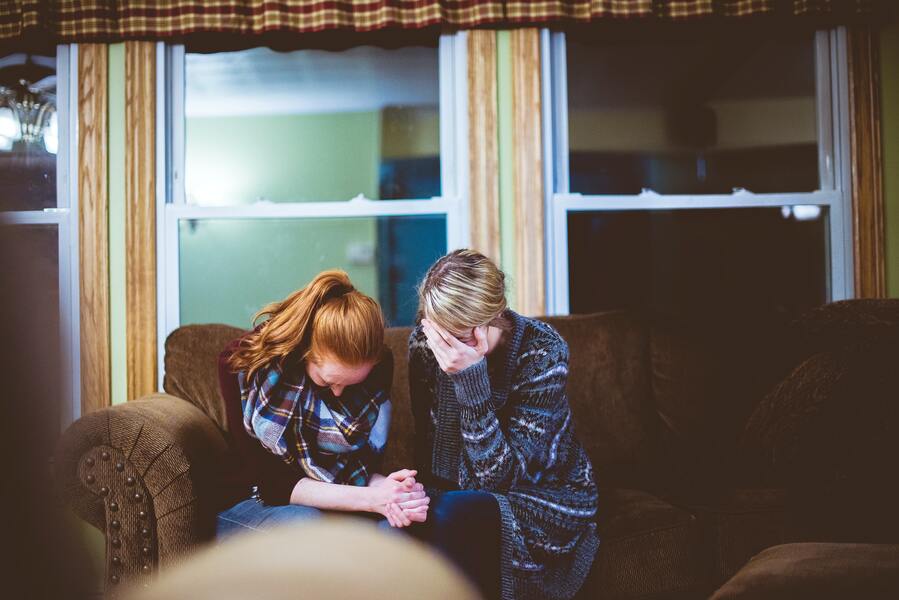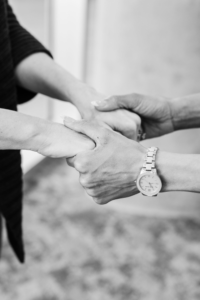Three years ago, I was diagnosed with stage 0 breast cancer. In the oblivion of my before-cancer life, I may have been careless about what I said to someone with a cancer diagnosis. Now I know more about what helps – and what doesn’t.
You may find it difficult to know how to respond to a friend with a cancer diagnosis. Here are some of my lessons learned.
- Let her work out her shock and fear. Recently, a friend—who had an irregular mammogram—went on an extreme health diet during the days before her follow-up biopsy. She researched obscure homeopathic pills and detox treatments, hoping to stave off a positive biopsy result. Keep in mind: this friend is an intelligent woman. I believe she knew her efforts in the days between the mammogram and the biopsy wouldn’t actually change the outcome. But she was in shock, and she needed a sense of control. Trust her and let her spiral. She will find her center of gravity again.
- Let her work out her theology of suffering. Cancer is a kind of suffering, and suffering stretches faith. Abstract, intellectual understanding of God’s goodness and sovereignty is tested. If your friend is suddenly reading about faith healing or retribution theology, do not freak out that she is heading down the wrong path. The convictions I got from the questions I asked during my cancer diagnosis clarified and solidified much that was simply theoretical before.
- Let her surface any wrong theology and doubts. As well as working out her practical theology, she may make shocking statements about her faith or about God. In time, you may revisit these issues with her, but please know that the dark times of pain and suffering are rarely the best times for debate. Just be there and listen. She may emerge with a more intimate relationship with Jesus through her lament.
- Do not assign blame. Regardless of the circumstances around the cancer diagnosis, do not add to her burden by implying she could have done anything to have averted this outcome. She is likely already haunted by regret; to suggest the diagnosis has anything to do with her choices is downright cruel. Any well-meaning recommendations for healthy living – even those necessary and true – can wait till well after her recovery.
- Do offer thoughtful practical support. I was grateful for friends who helped run errands: buying post-surgery necessities, delivering groceries and meals, and ferrying to and from doctors’ appointments. You may offer to be the point of contact to relay updates to other friends. Before my surgery, a friend who had previously had surgery took me out for lunch. She talked through many recovery details, lightening my load and helping me prevent being caught off-guard in my most vulnerable moments.
- Do not allow your kindness to become a burden. Ask permission for your ideas about how to help and accept the answer if your friend says she doesn’t want particular help. Give her space to reject your offer without guilt. However, consider a follow-up text in a few weeks; she may discover later she does need help. Let her dictate the nature and timing of her needs, and serve her with grace.
- Do ask to pray for and with her. The prayers of my friends throughout my journey – from the initial biopsy to surgery and recovery – were my greatest source of comfort, whether I heard them spoken aloud or rested on those prayers when I faced the hardest days. The surprising peace I felt during those times and the bonds fostered by my friends’ devoted prayers encourage me to this day. — June Chan is a regular contributor to Sacred Story.


